Opinion
ITU and autonomous Artificial Intelligence

By Sonny Aragba-Akpore
Most people who are information technology (IT) savvy have some understanding of Artificial Intelligence (AI) but beyond textbook knowledge,not many of them truly understand its domestic and autonomous capabilities.
AI is capable of doing virtually everything possible for humanity including possibly how to make babies,so we are told.
When sometime ago,AI was used to conduct a full church service on a Sunday in Europe,it was a marvel.But AI has gone beyond that.
The International Telecommunications Union ( ITU) is thinking outside the box as it prepares ground for autonomous AI by formulation of policies and ground rules.
And these ensure a new wave of autonomous AI—capable of reasoning, acting independently, and scaling at unprecedented speed,rapidly reshaping the technological landscape.
The rise of “agentic AI” and powerful, low-cost AI models is making artificial intelligence cheaper, more widely available, and potentially more energy efficient—but also harder to regulate.
With some prominent CEOs predicting human-level AI within two to three years, concerns are mounting over safety risks, weakened guardrails, and the challenge of responsible governance.
These pressing issues will be the focus of the AI for Good Global Summit 2025, the United Nations’ leading platform advancing AI in service of sustainable development, in Geneva, Switzerland from July 8–11,2025.
The expanded, four-day gathering will also showcase progress on advanced robotics, autonomous mobility, quantum computing, AI in space, and brain-computer interfaces.
Hosted by the ITU,the UN agency for digital technologies, the goal of AI for Good is to identify trustworthy applications of AI, build AI skills and standards, and strengthen global dialogue on AI governance for sustainable development.
“As AI development accelerates, so does the urgency to keep innovation aligned with the Sustainable Development Goals,” said ITU Secretary-General Doreen Bogdan-Martin. “AI for Good is where the world comes together to ensure these technologies are safe, responsible, and leave no one behind.”
At the AI for Good Global Summit 2025, leading experts from governments, industry, academia, civil society, and the UN will explore how AI is reshaping our world, tackling urgent challenges such as safety, employment, sustainability, privacy, security, governance, and its broader societal and economic impacts.
Among the AI visionaries set to present are Geoffrey Hinton, AI pioneer and Nobel Prize winner; Yoshua Bengio, Founder and Scientific Director of Mila – Quebec AI Institute and Turing Award winner; Sasha Luccioni, AI & Climate Lead of open-source AI developer Hugging Face; and other prominent voices.
Responding to the Global Digital Compact, adopted in 2024 by the UN General Assembly, the AI for Good Global Summit 2025 will provide a global platform for dialogue to advance AI governance, standards, and capacity building. As AI adoption accelerates, the Summit aims to inform policies and drive solutions that ensure AI is developed and deployed responsibly, fairly, and for the benefit of all.
Yet, a global AI governance gap persists—an ITU survey found that 55 per cent of Member States lack a national AI strategy, and 85 per cent have no AI-specific regulations.
To address this, the Summit will host ITU’s second AI Governance Day on July 10,focusing on safety, trust, international standards, and bridging the regulatory gap, while also tackling the urgent need to build AI skills and capacity, especially in developing countries.
On July 11 ,2025 the Summit will host an International AI Standards Exchange, bringing together leading global standards bodies to strengthen AI’s technical backbone, ensuring interoperability, safety, and inclusive standards development.
“ITU is driving the development of a trusted and interoperable AI ecosystem,” said Seizo Onoe, Director of ITU’s Telecommunication Standardization Bureau.
“Our AI standards are supporting innovation in areas from network orchestration and energy efficiency to multimedia coding and content authenticity. Our International AI Standards Exchange will help keep up global momentum on the technical underpinnings of responsible AI.”
The newly established AI for Good Awards, presented in partnership with Tech To The Rescue, will recognize groundbreaking AI solutions that contribute to global progress on sustainable development with categories including AI for People, AI for Planet, and AI for Prosperity. Applications for awards will open soon.
The AI for Good Global Summit is organized by ITU together with 47 partner UN agencies. The yearly event, co-convened by the Government of Switzerland, is free of charge and open to everyone.
This year, AI for Good makes its debut at Palexpo, Geneva’s largest event venue and exposition centre.
Apart from the ITU which has put in place some ground rules in the deployment of Artificial Intelligence (AI) and machine learning(ML),with International Standard Organisation (ISO),there are ongoing advocacies for entrenchment of ethics to minimise abuse of the use of AI across global communities.
AI ethics are the moral principles that companies and individuals use to guide responsible and fair development and use of AI.
Although there’s currently no wide-scale governing body to write and enforce these rules, many technology companies have adopted their own version of AI ethics or an AI code of conduct.
AI ethics are the set of guiding principles that stakeholders (from engineers to government officials) use to ensure artificial intelligence technology is developed and used responsibly. This means taking a safe, secure, humane, and environmentally friendly approach to AI.
A strong AI code of ethics can include avoiding bias, ensuring privacy of users and their data, and mitigating environmental risks. Codes of ethics in companies and government-led regulatory frameworks are two main ways that AI ethics can be implemented. By covering global and national ethical AI issues, and laying the policy groundwork for ethical AI in companies, both approaches help regulate AI technology.
The future will see large parts of our lives influenced by Artificial Intelligence (AI) technology. Machines can execute repetitive tasks with complete precision, and with recent advances in AI, machines are gaining the ability to learn, improve and make calculated decisions in ways that will enable them to perform tasks previously thought to rely on human experience, creativity, and ingenuity.
AI innovation will be central to the achievement of the United Nations’ Sustainable Development Goals (SDGs) by capitalizing on the unprecedented quantities of data now being generated on sentiment behavior, human health, commerce, communications, migration and more.
ITU will provide a neutral platform for government, industry and academia to build a common understanding of the capabilities of emerging AI technologies and consequent needs for technical standardization and policy guidance.
Countries must put in conscious efforts to mitigate the dangers of deployment if they want to achieve positive results.
Speaking during a digital press briefing on the review of the: “Global Inclusivity and AI-Africa Conference” as well as its responsible use, Deputy Assistant Secretary, Bureau of African Affairs, Joy Basu, stated that while it was great to grab the opportunities provided by the use of AI, the world must also learn to reduce its negative impact.
“Many of us know the risks that are both applicable in Africa but also in the United States.
There’s a lot of humility we have about understanding that none of us can control these risks alone and that it will really be a global conversation.
“You also have a number of risks particularly around elections. This is a year where so many countries are voting, including our own, and we all have to be aware of those risks.
“Regardless of the ways in which the risks manifest, one key mitigating solution that was discussed is ensuring that our populations are AI-equipped and are AI-ready and that they have not only the skills to take advantage of an AI workforce, but they have the critical thinking skills to be able to assess truth from fiction and disinformation and understand what those risks are and the way that they interact with AI,” Basu said.
She added that there was also a robust conversation throughout the conference about these various concerns as well as about the lack of certain kinds of data and languages and making sure these AI models are built in ways that are inclusive.
When the ITU hosted the yearly Global Seminar for Regulators(GSR),in Kampala,Uganda,in early in July 2024,Secretary General, Bogdan-Martin told the regulators that “With change being the only certainty facing regulators and policymakers, we must work together to pursue regulatory approaches to leverage transformative technologies such as AI, promote the space economy, encourage innovation, and support climate action and the UN Sustainable Development Goals.”
The regulators who met in Kampala,Uganda endorsed a set of guidelines to maximize the benefits of transformative information and communication technologies (ICTs) at the Global Symposium for Regulators (GSR-24) which closed July 4 .
GSR 24 highlighted Africa’s National Broadband Mapping Systems project, supported by the European Commission, to help establish broadband mapping systems to foster investment and digital transformation in Africa.
With a budget of EUR 15 million over four years, the project will initially benefit 11 countries: Benin, Botswana, Burundi, Côte d’Ivoire, Ethiopia, Kenya, Malawi, Nigeria, Uganda, Zambia and Zimbabwe.
The “GSR-24 Best Practice Guidelines” agreed by ICT regulators include a series of considerations for balancing innovation with regulation to create a positive impact on societies and economies from emerging technologies such as artificial intelligence (AI).
Opinion
CELEBRATING A PRODIGIOUS WORDSMITH: TUNDE OLUSUNLE @ SIXTY
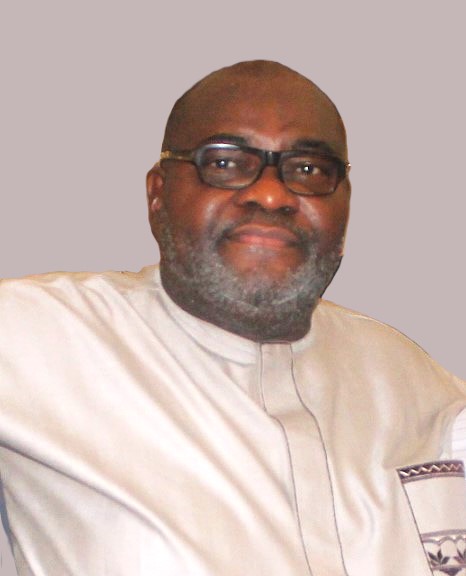
BY BOLAJI AFOLABI
Poring over countless title-ideas for this article, the above emerged from the blues. Further checks about the subject confirmed the title as fit and proper. Describing Tunde Olusunle as a “prodigious wordsmith” is no exaggeration. In every of his work, he comes across as one who has vocabulary virtuosity, and endowed with narrative mastery. He displays unimaginable linguistic dexterity which is intertwined with rhetorical flair, and imbued with creative vision. He carves the right words, and descriptive styles to paint beautiful scenery of complex and cumbersome situations. He crafts, engages, and suspends readers till the last words are happily soaked in. So, the title is both deliberate and intentional.
Dr. Tunde Olusunle, an Adjunct Professor of Creative Writing at the University of Abuja; which was recently re-named Yakubu Gowon University, is a man of many parts. He is a celebrated journalist; author; poet; communicator; and public speaker. Thus, he fits into all the fields where intellect, elucidation, and erudition coalesce. As a Columnist and Editor, he rose to the top of Journalism. In Literature, aside from having degrees, he has many published (and yet to be published) poems. He has written, co-written, edited, and co-edited over a dozen books; earning the Fellowship of the Association of Nigerian Authors, (FANA). In the last few years in academia, he is making exceptional accomplishments as a scholar, teacher, and researcher nurturing and mentoring a new generation of creative writers.
Sometime in the ’90s; during the Late General Sani Abacha regime, the writer went to the Saka Tinubu, Victoria Island, Lagos office of an elder brother; Ade-Ralph Olamife. After late lunch at the classy canteen within the precincts of the Nigeria Telecommunications Limited, (NITEL) offices, the host extended an invitation. He said, “I want you to join me later today to meet a friend coming from Ikeja.” About 7 pm, we (Olamife, two other friends, and the writer) drove into Bishop Oluwole Street in Victoria Island, Lagos. The building was the Kogi state Liaison Office at that time. Surprisingly, the august friend, who came with another person was already seated. After the exchange of pleasantries, the subject of this article was introduced by Olamife. Olusunle, who came with Alhaji Hakeem Bello; later Media Adviser to Babatunde Raji Fashola, (SAN), interacted freely with everyone. During the over two hours sit-out, Olusunle came across as a witty, lively, intelligent, and brilliant personality.
After this first meeting, the writer; through Olamife had subsequent interactions with Olusunle in Ikeja, Maryland, Ikoyi, and Victoria Island areas of Lagos. On every occasion, he exudes confidence and accessibility just as his humble and humane attributes come alive. After over a year of gap, largely due to the analogue communication state, and his relocation out of Lagos, Olamife broke the cheering news of Olusunle’s appointment as the Chief Press Secretary to the Kogi state Military Administrator; Col. Paul Omeruo. A few months later, the writer accompanied (as usual) Olamife; to visit Omeruo in Lokoja. By the way, both Olusunle and Olamife are mutual friends to the Administrator, fondly referred to as PUNO; initials of his names. During the two-week visit, Olusunle was the perfect host; he made every evening eventful and memorable. From discussions, many civil servants spoke glowingly about him. In and around the Lugard House; Administrator’s residence and office, as well as Ministries, Departments, and Agencies, (MDAs), his interpersonal relationships were eulogized. Succinctly, he could be described as a people’s man.
With the birth of democracy in May 1999, and the inauguration of Chief Olusegun Obasanjo as the President and Commander in Chief of Nigeria, the writer partially relocated to Abuja, hoping to explore opportunities in the new government. Watching the Nigerian Television Authority’s flagship news, the advert inviting people to the official launch of the new administration’s “Campaign for National Rebirth” sounded interesting. The writer made his way to the purposely-built Eagle Square venue of the event. As the programme progressed, the presence and importance of Olusunle was very evident. Events over, the writer swiftly moved from the stands down the platform to offer salutations to him. Pushed, shoved aside by over-zealous security operatives, it was a herculean task. At the point of giving up, an incident happened which diverted the attention of almost everyone. Leveraging on this, the writer made his way to the dais. Standing before Olusunle, he called the writer’s name, hugged, and exchanged pleasantries. Quickly, he said, “I’ll be out of Abuja for one week, meet me at Sheraton Hotels next week please.”
The writer’s visit to Sheraton Hotels marked the beginning of a relationship that has grown in leaps and bounds. Either at the Hotel’s Papillon Restaurant or the Poolside Bar, and Nicon Noga (now Transcorp) Hilton Hotel, the compassionate, empathetic, and accommodating attributes of Olusunle always come to the fore. They were unmistakable and unequivocal. During one of the numerous visits, he requested for the writer’s curriculum vitae; without saying what he wanted to do with it? It was discovered, early that he loves working behind the scenes. Beneficiaries of his advocacy, and benevolence only get to know when “food don done for eating.” One recalls on a visit to his 7th floor, Sheraton Hotels “temporary official residence” he beckoned on the writer to accompany him to somewhere. In a few minutes, we were in one of the suites at the Hilton Hotel, only to see Chief Onyema Ugochukwu, emeritus journalist, and public administrator walked in. With shock, suspense, and excitement written on one’s face, Olusunle introduced the writer saying, “Oga, this is one of our younger but silent supporters.”
A few months later, the import of that visit came to light. Through the persistent advocacy, and resilient prodding of Ugochukwu and Olusunle, President Obasanjo gave approval for major recruitments to strengthen the rebirth campaign, and public affairs management of the new government. So, the writer and other people benefitted from a forward-thinking proposal that was primarily targeted at media professionals who were part of the Obasanjo presidential campaign organization. Pastor Tumo Ojelabi, a retired Federal Director who was one of the beneficiaries declared that, “Oga, is a fastidious personality, a determined helper who can be positively stubborn, and dogged when pursuing a course that he has strong conviction about.” Continuing, Ojelabi, who was the official Photographer to Obasanjo during the presidential campaign said, “but for his resilience, courage, and never-quiver spirit; and Oga Ugochukwu, many of us who toiled during the campaigns would have been left dry.” For Mr. Taiwo Akinyemi, who was Obasanjo’s campaign Official Videographer, “Olusunle is a fighter; a dynamic fighter for other people. When he realized that politicians who did not contribute much to Baba’s electoral success were getting their loyalists into the new government, he fought relentlessly for us all. God used him to get me employed in the federal civil service, I remain eternally grateful.”
Olusunle is a pan-Nigerian, totally detribalized, and not given to ethnicity, religious segregation and similar stereotype. Described by close friends as diligent, dedicated, and devoted to friendship, Olusunle remains a restless and tireless quester for knowledge and new challenges. Given his multi-dimensional, and multi-tasking skills and proficiencies, he can excel in whatever profession, assignment, and position. Energized by his voracious search for new ideas, he is almost, always thinking out of the box. Very ingenious, creative, and imaginative, one recalls few initiatives that came from his fertile mind during the Obasanjo presidency. Persistent encouraging words about Nigeria’s sports which led to the inclusion of the “sports brief” to his schedules. Advocacy for the hosting of the Commonwealth Heads of Government Meeting, (CHOGM) at any of the nation’s resorts; which informed him leading a team of journalists, tourism experts, and bureaucrats to the Yankari Games Reserves in Bauchi. What about the National Media Tour, though initiated by him but hijacked by a few top government officials who at the end muddled the entire programme?
Corroborating, Mr. Vincent Oyefeso, a retired Federal Director, and another beneficiary of the Obasanjo appointments approval, said, “he is an illustrious Nigerian and a patriot per excellence, who bestrides many walks of life as an intellectual collossus, a humanist of no mean hue, and an advocate of the finest social ethos. At the realms of public communications, the academia, and public service, he exudes the best practices worthy of emulation by right-thinking compatriots.” For Mr. Ukadike Uwabor, a media communications consultant, “since I’ve known him, he has remained consistent with the core values of excellence, versatility, and intellect. He relates perfectly with different people no matter the age, religion, tribe, or social status. Little wonder his friends cut across different strata of the society. That the people of Umukabia autonomous community in Abia state conferred on him a chieftaincy title; which is outside his geographical, ethnic, and linguistic zone speaks volumes about his personality.” Olusunle by the way, has few other titles bestowed on him in different parts of the country.
Agreed, no human being is perfect but the writer has personal experiences about Olusunle that remains nostalgic. Indeed, the over two decades relationships have grown from one stage to the other. From boss to teacher, mentor, and motivator. He has played (and continues to play) different roles in one’s professional development, and career progression. Perhaps, he may not realize this; while working with him, Olusunle doesn’t attend meetings alone. The writer, Late Alhaji Wasiu Anjous, and (on few occasions) Akinyemi accompanied him to any meeting, particularly with MDAs. Another striking feature was that he introduced you as a “colleague.” With that, one’s stock, respect, and recognition increases. One of the fall-out of such remarkable style happened at the 2004 Olympics Games in Greece, when Late Mr. Solomon Matankari, Nigeria’s Chef de Mission, and Sports Ministry’s Permanent Secretary insisted on the participation of Anjous and the writer in high-level meetings.
Not persuaded by the hierarchical structure of the civil service, Olusunle places premium on availability, delivery, and consistency. Just a few months after being deployed to his office, the writer had a baptism of fire. Barely 48 hours after one of the regular presidential chats, Olusunle passed the recorded tape, and declared, “do transcribe and deliver in three days.” Sensing shock, and surprise, he encouraged, “you can do it, go at your pace.” On another occasion, a few days after commending the writer on a piece, “From Saw Dust To The Skies,” he said, “write a speech for Dr. Mrs. Kema Chikwe, the Aviation Minister, for a programme this Saturday to be held in Garki, Abuja.” Though tough but exciting, it marked my entry into the exclusive class of speech writers; till this moment. Sometime in 2023; after long hiatus from opinion writing, due to a new assignment at the National Assembly, the writer did a piece. Impressed, Olusunle called immediately, “BJ, I’ve just read your brilliant article. I encourage you to make this more regular, please. I’m available to offer any support where and when necessary.” Truly, he has kept faith to his promise in the over thirty articles written between December 2023 and now.
This is the man we are celebrating today, and always. Olusunle is an extremely organized personality, whose writings and interventions are laced with irrefutable data, educative instances, and inspiring suggestions. When occasions demands, you can’t help but applaud his depth of knowledge, information reservoir, deep vistas, and un-ending capacity. Oyefeso prays that, “the Lord grants him peace as he steps into the sixth floor. The Father of Lights will continually uphold and uplift him from Glory to Glory in Jesus Name.” Mr. Jacob Zwings, aide to Director-General, National Orientation Agency added that, “Oga Tunde, in his own way has impacted positively on the lives of people. On the occasion of his Diamond jubilee, I pray that God will perfect everything that concerns him and his family.” Akinyemi declared that, “just as he has been a blessing to other people’s children, God will bless him, his wife, and children.” Uwabor believes that, “Enyi Oha has become a reference point to many people. The good Lord will grant him more years in good health as he age gracefully with abundance of all-round blessings.” Ojelabi affirmed that, “Olusunle is who he is today; an accomplished man who stands tall among his peers because of his commitment towards extending helping hands to those who needs it.”
* BOLAJI AFOLABI, a Development Communications specialist was with the Office of Public Affairs, The Presidency, Abuja.
Opinion
PROFESSOR HUMPHREY NWOSU: THE UNSUNG HERO OF TRUE NIGERIAN DEMOCRACY
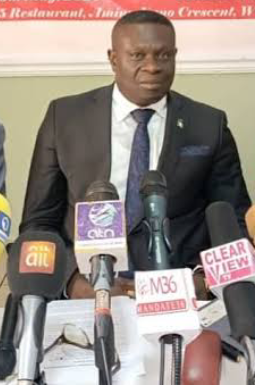
Written by Dr. Nwambu Gabriel,Director General, Centre for Credible Leadership and Citizens Awareness
Introduction
The journey to democratic governance in Nigeria has been fraught with challenges, conflicts, and untold sacrifices. Among the gallant figures who stood resilient in the face of adversity was Professor Humphrey Nwosu. As we mourn the loss of a remarkable leader and an indomitable champion of democracy, we reflect on his contributions and unwavering commitment to the electoral process, which laid a foundational path for Nigeria’s democratic practice.
A Visionary Electoral Leader
Professor Nwosu’s tenure as Chairman of Nigeria’s National Electoral Commission (NEC) from 1989 to 1993 marked a pivotal era in the nation’s electoral history. Unlike many of his contemporaries, Nwosu approached his responsibilities with an unwavering resolve to uphold the sanctity of the electoral process. He successfully organized several elections, including Local Government Chairmanship, Governorship, and State and National Assembly elections, which were lauded for their transparency and fairness. His most significant achievement came with the conduct of the June 12, 1993, presidential elections, widely regarded as one of the freest and fairest elections in Nigeria’s history.
Courageous Stand Against Adversity
In an environment characterized by military interference and political manipulation, Nwosu exemplified courage. He boldly overturned a court order issued on June 10, 1993, that sought to halt the presidential elections. Despite facing intense pressure from the military establishment led by Ibrahim Babangida (IBB), he remained resolute, emphasizing his commitment to ensuring that the elections were conducted as planned. His insistence on completing his mandate, even when his commission was dissolved midway through the electoral process, is a testament to his integrity and dedication.
His unyielding stance culminated in the announcement of results from 29 out of 30 states in the June 12 elections. Although General Ibrahim Babangida annulled the elections before Nwosu could declare the final results, his steadfastness demonstrated his belief in the democratic process and the necessity of honoring the voice of the Nigerian electorate.
Championing Democracy Through Documentation
Professor Nwosu did not allow the annulment of the June 12 elections to silence his voice. In his book, *Laying the Foundation of Nigeria’s Democracy: My Account of June 12, 1993 Presidential Election and Its Annulment*, he chronicled the events leading to the election and its aftermath. By publishing the results of the June 12 elections, he presented irrefutable evidence of MKO Abiola’s victory, reinforcing the notion that the people’s will should prevail over political machinations. This documentation serves as a historical account of a significant moment in Nigeria’s struggle for democracy and a rallying cry for future generations.
Legacy of Integrity
As we reflect on Professor Nwosu’s life and contributions, it is essential to recognize his legacy of integrity, bravery, and unwavering commitment to democratic principles. He stood as a beacon of hope during a tumultuous period in Nigerian history, proving that one individual’s resolute stand could indeed lead to monumental change. His story serves as an inspiration to current and future leaders to prioritize the will of the people over personal or political gain.
Conclusion
The passing of Professor Humphrey Nwosu is not just a loss to his family and friends but to a nation that desperately needs champions of democracy. His actions during the critical moments of June 12, 1993, solidified his place in history as a true man of democracy. As we commemorate his life, we are reminded that democracy thrives through the courage and integrity of individuals like Professor Nwosu—those who are willing to stand firm against oppression and ensure that the voice of the people is heard.
May his soul rest in peace, and may his legacy continue to inspire generations to uphold the values of democracy, transparency, and justice in Nigeria.
Opinion
Hon. (Dr.) Saheed Mosadoluwa: A Beacon of Visionary Leadership
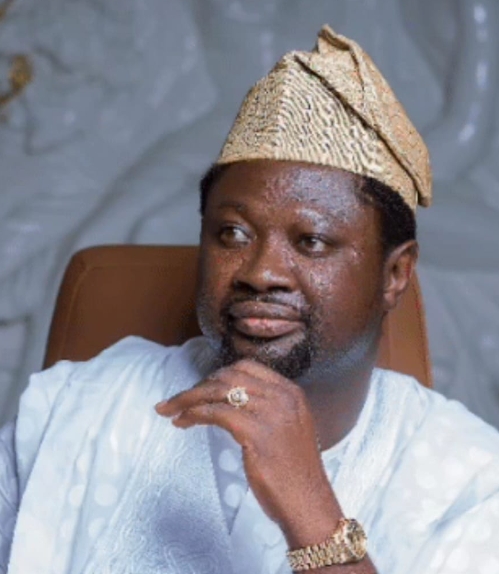
In an era where effective leadership is more crucial than ever, Hon. (Dr.) Saheed Mosadoluwa stands out as a beacon of visionary leadership. His approach transcends traditional governance, embodying a blend of innovation, empathy, and strategic foresight that inspires those around him and fosters community growth.
Pioneering Change Through Vision
Dr. Mosadoluwa’s leadership is characterized by a clear, forward-thinking vision. His ability to foresee challenges and opportunities allows him to craft policies that not only address current issues but also lay the groundwork for a prosperous future. He understands that visionary leadership is not just about having a great idea; it is about mobilizing resources, people, and initiatives to turn ideas into reality.
Empathy and Inclusivity at the Core
At the heart of his leadership philosophy is a deep sense of empathy. Dr. Mosadoluwa believes that true leadership involves listening to the voices of the people and prioritizing their needs. He fosters an inclusive environment where diverse perspectives are valued, ensuring that every stakeholder feels heard and respected. This commitment to inclusivity not only strengthens community ties but also enhances the effectiveness of governance.
Innovative Solutions for Sustainable Development
Dr. Mosadoluwa recognizes the complexities of today’s challenges and approaches them with innovative, sustainable solutions. He champions initiatives that leverage technology, education, and sustainable practices to drive development. His focus on smart, sustainable urban planning and community-driven projects demonstrates his commitment to fostering resilient communities that can thrive in the face of adversity.
Empowering Future Leaders
As a visionary leader, Dr. Mosadoluwa is dedicated to empowerment. He actively mentors the next generation of leaders, believing that true leadership involves creating opportunities for others to grow. Through workshops, seminars, and community engagement initiatives, he inspires young minds to develop their leadership potential and become active participants in shaping their futures.
Commitment to Transparency and Accountability
Honesty and integrity are cornerstones of Dr. Mosadoluwa’s leadership. He believes that transparent governance builds trust within the community. By promoting open communication and accountability, he sets a standard for ethical leadership, ensuring that decisions are made in the best interest of the community.
Conclusion
Hon. (Dr.) Saheed Mosadoluwa is more than just a leader—he is a visionary. Through his innovative strategies, empathetic approach, and commitment to inclusivity, he is redefining the true definition of what Leadership. As he continues to inspire and enact positive change, Dr. Mosadoluwa remains dedicated to building a better future for all, proving that with visionary leadership, anything is possible.
-
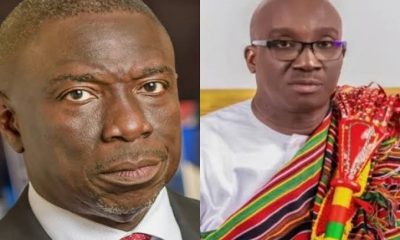
 Politics16 hours ago
Politics16 hours agoJust in: Confusion As Edo Guber Tribunal ‘Judgment’ Leaks Online
-
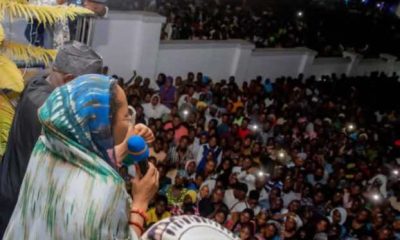
 News15 hours ago
News15 hours agoKogi Central constituents jubilate as Senator Natasha arrives home+Photos
-

 Entertainment16 hours ago
Entertainment16 hours agoJUST IN: Nigerian Immigration Nabs Popular Crossdresser, Bobrisky
-
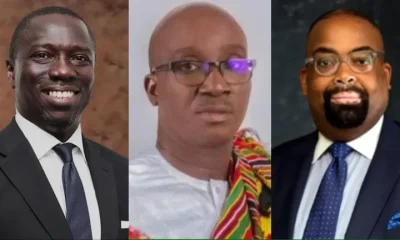
 News18 hours ago
News18 hours agoEdo Gubernatorial Election Tribunal Announces Ruling Date(Tomorrow)
-
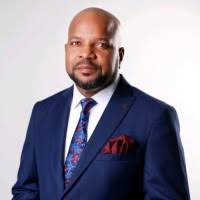
 News19 hours ago
News19 hours agoDeputy Speaker Appoints Hart as New Chief of Staff
-
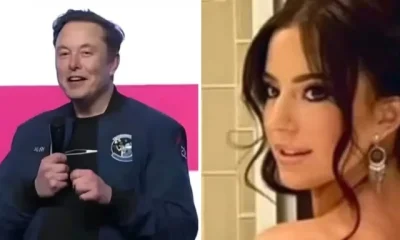
 News19 hours ago
News19 hours agoBaby Mama: Elon Musk responds to calls on child support payments
-
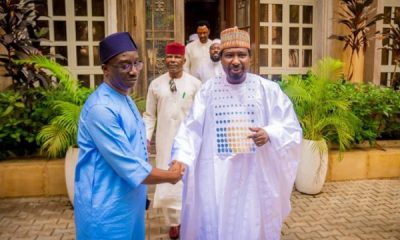
 News19 hours ago
News19 hours agoEdo Killings: Jibrin Shares Details of His Discussion with Okpebholo
-

 News12 hours ago
News12 hours agoDelta Police Arrest Suspected Kidnappers, Recover Arms, Ammunition


















